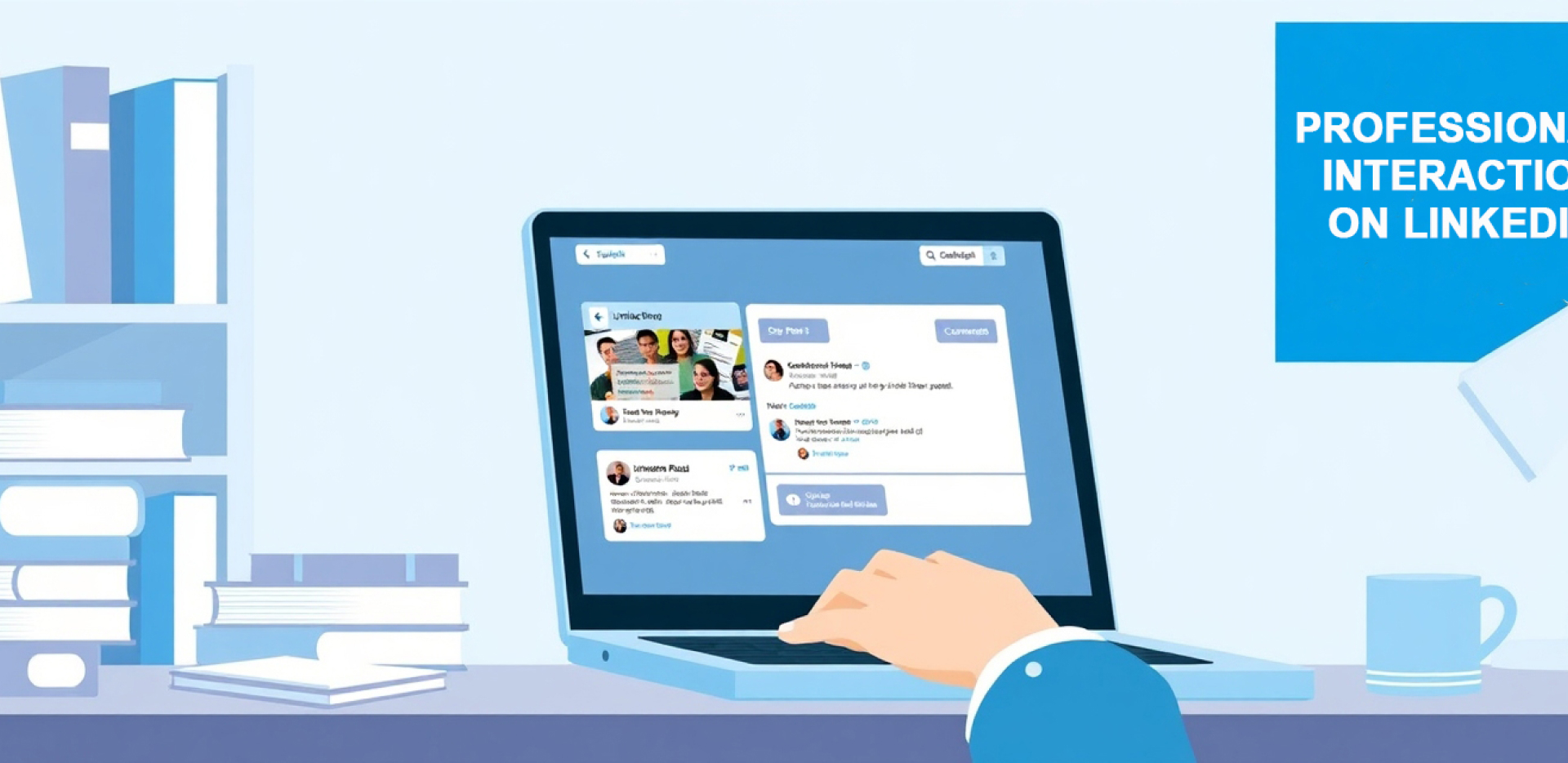
Why Career Networking is Crucial for Career Success
According to a LinkedIn study, 85% of jobs are filled through career networking rather than traditional job applications. Career Networking is an important practice where one can learn about new opportunities, and clients, or even stay up-to-date regarding the latest trends.
but, it is important to incorporate an element of professionalism in the interactions with individuals that exist outside of the family circle.
This will help draw a line where work begins and socializing ends. Personal branding is essential, as it allows an individual to be perceived differently from the rest of the professionals in the industry.

Key Advantages of Establishing Networking Connections
We would like to outline some additional advantages of career networking.
- Access to Opportunities: Career networking unveils hidden job prospects and career growth opportunities.
- Knowledge Sharing: You learn about trends and new developments through discussions with colleagues and key figures of the industry.
- Mentorship: Networking helps you meet and serve mentor figures for You in your progressing career field.
- Building Visibility: Frequent networking ensures that you maintain a relative stature in your field.
Example: Let’s say that Sarah is just starting out in the marketing profession and is eager to succeed in it. She approached marketers and introduced herself at industry events, successfully building a career by finding her way into a niche market.

How to Build a Strong Network
Networking is not something that can be done in a single day or overnight; rather, it involves a number of processes and requires patience and intention.

1. Begin with the People You Are Familiar With
Start with the family members, colleagues, or even classmates that you might have had in the past. These people are already aware of you and are most likely inclined to extend assistance to you.
Tip: Reconnect with former colleagues on LinkedIn and consider becoming a member of alumni associations.
Action Step:
When connecting with someone, it is better to include a personalized message
such as:
“Hi [Name], I noticed that you posted something about [topic] recently. It’s so nice to see you again. Let’s meet up sometime!”
2. Go to Professional Gatherings
Events like conferences, workshops or seminars are a great opportunity to meet other professionals in your area who have similar interests.
Tip: Make sure you come up with an elevator pitch for yourself so that you can articulate your skills and career aspirations in no time.
Example: For example, if you happen to be in yet another technology conference, some might say:
“My name is Alex, and I am a software engineering specialist who is interested in AI solutions. Most recently, I completed a project where I applied machine learning in optimizing logistics.”
3. Utilize Social Media Channels
Career networking in the virtual world is equally significant. Make relevant connections on websites including LinkedIn, Twitter, and industry-related message boards.
Example: For example, if you happen to be in yet another technology conference, some might say:
“My name is Alex, and I am a software engineering specialist who is interested in AI solutions. Most recently, I completed a project where I applied machine learning in optimizing logistics.”
Action Step:
Post once in a while on LinkedIn about what you do or what you think. Content that is interesting usually starts conversations.
4. Seek Networking Communities
Get actively involved in relevant industry communities, whether it is online or physical. For instance, become a member of regional organizations
Strategies for Effective Networking
Career networking can be said as an art that involves creativity, strategy, and social skills.
1. Emphasize ‘best’ and not ‘more’
If you can only have significant conversations with a few people, that is still preferable over having dozens of shallow acquaintances.
Tip: After networking, send a short personalized note to contacts that will make them remember you.
2. Give Before You Get
Networking is not just about getting, it’s also about giving. Think, “What’s in it for this person?”
Tip: Write about what’s happening in the field, suggest helpful services to the target, or introduce him /her to colleagues in your industry.
3. Be Real
The real deal. People will not hesitate to take a stand if they feel you are fake and phony.
Tip: Make them feel interested by asking questions such as:
“Tell me more about this career. What makes it special for you?”
Overcoming Networking Challenges
Many professionals find networking intimidating. Common barriers include shyness, lack of confidence, or fear of rejection.
1. For Introverts
Start with one-on-one meetings or smaller groups rather than large gatherings. use online platforms where you can network at your own pace.
2. Managing Time
Schedule networking activities into your calendar, just like work meetings. prioritize events that align with your goals.
Maintaining and Nurturing Connections
Networking doesn’t end once you’ve made a connection. Building a long-term relationship is crucial.
1. Follow Up Regularly
Send periodic messages to check-in. Share articles or congratulate them on their achievements.
Tip: Use tools like CRM software to manage and organize your contacts.
2. Attend Reunions
Reconnect with contacts through alumni meetups, industry reunions, or informal gatherings.
Expert Opinions on Networking
Industry leaders emphasize the importance of networking:
Reid Hoffman, co-founder of LinkedIn, states, “The people you know define your trajectory in life.”
1- Christie Hunter Arscott suggests focusing on what you’re going to ask rather than what you’re going to say when networking. She emphasizes moving from small talk to deep conversations to make meaningful connections. You can read more about her approach here.
2- Rakshitha Arni Ravishankar advises that networking doesn’t have to feel transactional. She recommends using networking as an opportunity to help others and engage in more intimate conversations. You can find her insights here.
3- Deborah Grayson Riegel highlights the importance of leveraging your network beyond just job hunting. She suggests reconnecting with dormant ties, helping others, and playing the long game for career growth. More details can be found here.
4- Work Wise Notes : Building a Network in a New Industry: Where to Begin
Quick Networking Tips to Get Started
- Be Proactive: Don’t wait for opportunities; create them by reaching out.
- Be Polite: Always thank people for their time and advice.
- Use Social Media Wisely: Join discussions, comment on posts, and share insightful content.
- Stay Updated: Keep your profiles and resumes up-to-date.
Conclusion
Let’s be honest: when most people think about the term ‘networking’, they associate it with actively seeking job opportunities. However, networking is a lot more than just job hunting. It is the act of being valuable to others, establishing connections, and building relationships that could last forever. You just have to be genuine and start slow. When done right, it opens the door to a limitless amount of growth. So, what’s holding you back? Go to that event, send that LinkedIn invite, or begin that conversation. It is always one handshake that separates you from your next career breakthrough.













